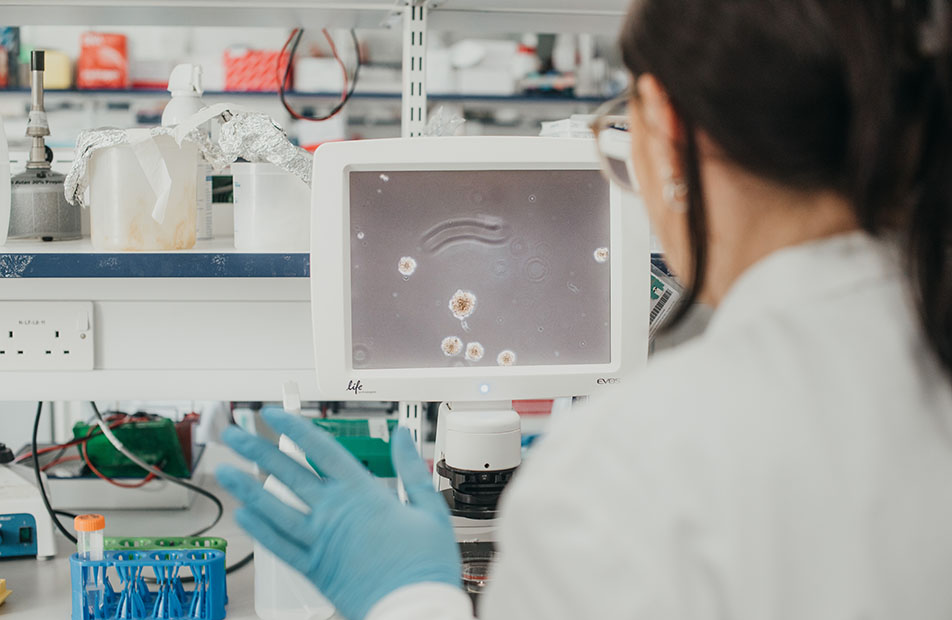Home > News > Research into replacing insulin-producing cells is advancing rapidly, with ‘arm pancreas’ trial announced
News

Using a technique co-invented by Professor Matthias Hebrok, one of the Grand Challenge Scientific Advisory Panel Vice Chairs, researchers are exploring a promising treatment for type 1 diabetes in a new clinical trial, involving transplanting insulin-producing beta cells into the forearm, creating an ‘arm pancreas’.
Revolutionising research into beta cell replacement
Globally, research focused on replacing insulin-producing beta cells, which are destroyed in type 1 diabetes, is advancing rapidly. US biotech company Minutia is developing technology for a new clinical trial, supported by three non-dilutive funders, California’s Stem Cell Agency, JDRF International, and the National Institute of Health, and is working collaboratively with the University of California, San Francisco, and Duke University.
The two-part trial involves transplanting clusters of islets, that contain insulin-producing beta cells, into the forearms of eight participants, creating an ‘arm pancreas’. In the first phase, cells from donors have been successfully transplanted, while the second phase aims to use cells grown in the lab from stem cells, in much larger quantities.
Co-founder of Minutia Professor Hebrok, at the Technical University of Munich and Helmholtz Munich, said that while islet transplants from donors have already seen success, there’s a critical shortage of donors, meaning that only a tiny fraction of people with type 1 diabetes can currently benefit from a transplant.
Professor Hebrok said:
“I think the stem cell-derived cells are a revolution. Of course, we’re at the very early stages. But we could generate as many cells as we would like, to treat a tremendous number of patients.”
A growing community
The Type 1 Diabetes Grand Challenge is investing £30 million into the most cutting-edge projects in beta cell therapies. The diabetes research community is optimistic about the field’s potential to end the constant insulin dosing and blood sugar monitoring that people living with type 1 diabetes currently have to endure.
Professor Hebrok is Vice Chair of the Grand Challenge Scientific Advisory Panel advising on the research stream focused on beta cell replacement therapies. With funding from the Grand Challenge, there are now more than 70 researchers and collaborators working to grow, replace, and protect beta cells, so that people with type 1 diabetes can make their own insulin again. It’s encouraging to see the beta cell research community grow, with more researchers exploring creative new approaches that are moving us closer to a cure for type 1 diabetes.
Dr Lucy Chambers, Head of Research Communications at Diabetes UK, said:
“Cutting-edge cell therapies that enable people with type 1 diabetes to make their own insulin again are within reach.
“While there’s still much work to do to get these into clinical practice, programmes such as the UK’s Type 1 Diabetes Grand Challenge, are bringing us closer to the day when living with type 1 diabetes no longer requires relentless, round-the-clock self-management, and short- and long-term complications are a thing of the past.”



